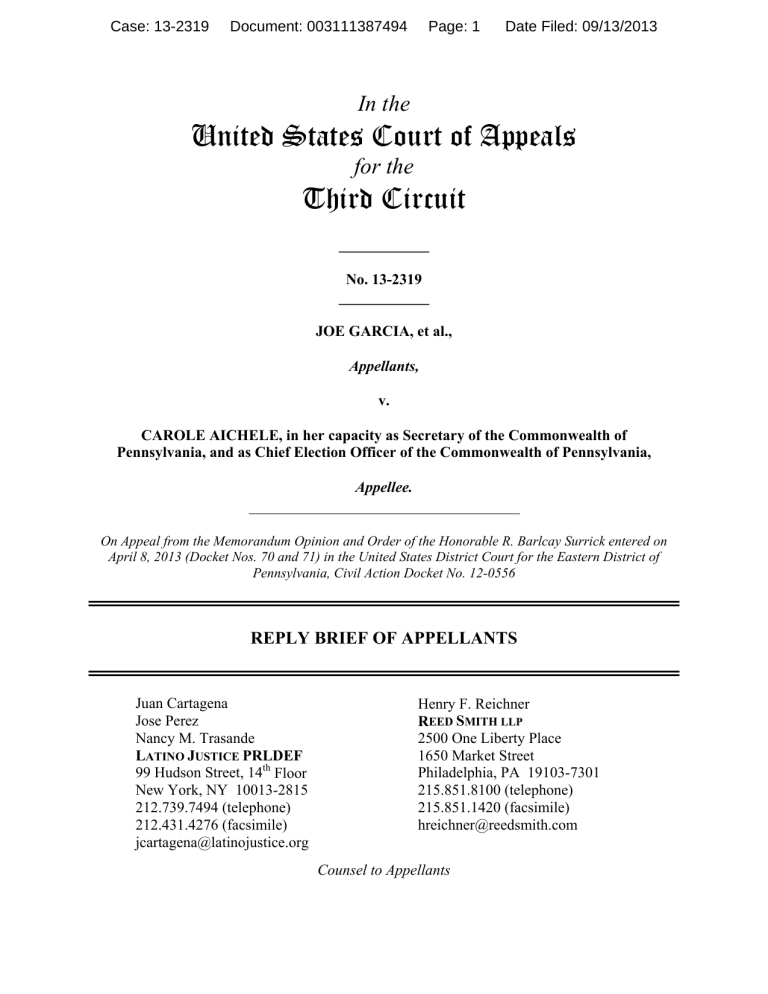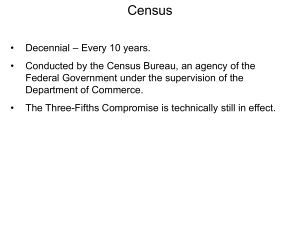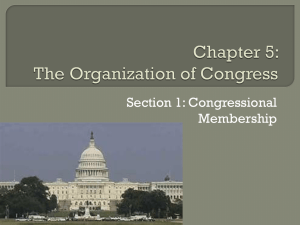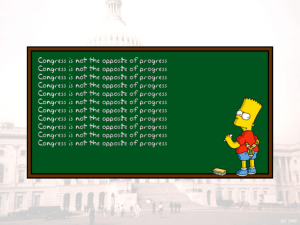United States Court of Appeals In the for the

Case: 13-2319 Document: 003111387494 Page: 1 Date Filed: 09/13/2013
In the
United States Court of Appeals for the
Third Circuit
____________
No. 13-2319
____________
JOE GARCIA, et al.,
Appellants, v.
CAROLE AICHELE, in her capacity as Secretary of the Commonwealth of
Pennsylvania, and as Chief Election Officer of the Commonwealth of Pennsylvania,
Appellee.
On Appeal from the Memorandum Opinion and Order of the Honorable R. Barlcay Surrick entered on
April 8, 2013 (Docket Nos. 70 and 71) in the United States District Court for the Eastern District of
Pennsylvania, Civil Action Docket No. 12-0556
REPLY BRIEF OF APPELLANTS
Juan Cartagena
Jose Perez
Nancy M. Trasande
L
ATINO
J
USTICE
PRLDEF
99 Hudson Street, 14 th
Floor
New York, NY 10013-2815
212.739.7494 (telephone)
212.431.4276 (facsimile) jcartagena@latinojustice.org
Henry F. Reichner
R
EED
S
MITH LLP
2500 One Liberty Place
1650 Market Street
Philadelphia, PA 19103-7301
215.851.8100 (telephone)
215.851.1420 (facsimile) hreichner@reedsmith.com
Counsel to Appellants
Case: 13-2319 Document: 003111387494 Page: 2 Date Filed: 09/13/2013
TABLE OF CONTENTS
Page
I.
INTRODUCTION ........................................................................................... 1
II.
ARGUMENT ................................................................................................... 3
A.
Donatelli v. Mitchell Does Not Aid This Court’s Analysis .................. 3
B.
An Abridgment Of The Right To Participate In An Election On
An Equal Basis With Other Citizens Is Not Cured By Later
Creating Districts Of Equal Population For Those So-Elected ............ 6
C.
Courts Have Refused To Allow Legislators Elected In Grossly
Malapportioned Districts To Remain In Office For A Full Term ........ 7
III.
CONCLUSION .............................................................................................. 14
Case: 13-2319 Document: 003111387494 Page: 3 Date Filed: 09/13/2013
TABLE OF AUTHORITIES
Cases
Donatelli v. Mitchell,
2 F.3d 508 (3d Cir. 1993) ............................................................................. passim
Dunn v. Blumstein ,
405 U.S. 330 (1972) ............................................................................................... 5
French v. Boner ,
963 F.2d 890 (6th Cir. 1992), cert. denied , 506 U.S. 954 (1992) ........................ 11
Graves v. City of Montgomery ,
807 F. Supp. 2d 1096 (M.D. Ala. 2011) ........................................................ 10, 11
Keller v. Gilliam ,
454 F.2d 55 (5th Cir. 1972) .................................................................................... 9
Political Action Conference v. Daley ,
976 F.2d 335 (7th Cir. 1992) ......................................................................... 10, 11
Republican Party of Oregon v. Keisling ,
959 F.2d 144 (9th Cir. 1992), cert. denied , 504 U.S. 914 (1992) .......................... 6
Reynolds v. Sims ,
377 U.S. 533 (1964) ...........................................................................................4, 5
Rodriguez v. Popular Democratic Party ,
457 U.S. 1 (1982) ...............................................................................................4, 5
Tucker v. Buford ,
603 F. Supp. 276 (N. D. Miss. 1985) ............................................................ 7, 8, 9
Watkins v. Fordice ,
791 F. Supp. 646 (S.D. Miss. 1992) ....................................................................... 8
Watkins v. Mabus ,
771 F. Supp. 789 (S. D. Miss. 1991), aff'd mem. in part and vacated as moot in part , 502 U. S. 954 (1991) ....................................................................7, 8
- i -
Case: 13-2319 Document: 003111387494 Page: 4 Date Filed: 09/13/2013
Statutes
42 U.S.C. § 1983 ........................................................................................................ 3
Other Authorities
Pa. Const. art. II, § 17(c) ................................................................................... 11, 12
- ii -
Case: 13-2319 Document: 003111387494 Page: 5 Date Filed: 09/13/2013
I.
INTRODUCTION
The brief submitted by Appellee Carole Aichele in her capacity as Secretary of the Commonwealth of Pennsylvania and as Chief Election Officer of the
Commonwealth of Pennsylvania (the “Secretary”) does a masterful job of mingling the material with the immaterial but concedes – as it must – the essential points that require this Court to reverse and remand.
That a court may properly refuse to enjoin an election under malapportioned districts when the election is imminent does not ineluctably lead to the conclusion that those so-elected are entitled to serve out the full term. Neither logic nor law support the Secretary’s argument that an abridgment of the right to participate in an election on an equal basis with other citizens is cured by the subsequent creation of districts of equal population for those officials so-elected. Donatelli v. Mitchell , 2
F.3d 508 (3d Cir. 1993), certainly does not support such an argument. That case did not involve an election but rather addressed an appointment to fill a vacancy.
It turned on whether or not there was a right to vote, per se , and not – as is the case here – the constitutionally protected right to participate in elections on an equal basis with other citizens when a state has provided that its representatives be elected.
- 1 -
Case: 13-2319 Document: 003111387494 Page: 6 Date Filed: 09/13/2013
At the end of the day, the Secretary does not dispute that:
1.
at the time the 2012 elections were held, the election districts that were used had been in existence for well over 10 years;
2.
the 2010 census established that the total range of population deviation in those election districts greatly exceeded 10%;
3.
based on past experience, the reapportionment committee had more than ample and sufficient time to complete the task of redistricting prior to the elections; and
4.
Appellants timely filed their claim prior to the 2012 elections but there was insufficient time to redistrict prior to the elections.
These undisputed facts should be the beginning and the end of this Court’s analysis.
This Court should reverse, remand, and direct that a three-judge panel be appointed to consider Appellants’ motion to shorten the four-year term of all
Pennsylvania State Senators elected in 2012 and to set a special election for a twoyear term for those seats to be held in conjunction with the regularly scheduled statewide elections in 2014.
- 2 -
Case: 13-2319 Document: 003111387494 Page: 7 Date Filed: 09/13/2013
II.
ARGUMENT
A.
Donatelli v. Mitchell Does Not Aid This Court’s Analysis
The Secretary relies principally on Donatelli v. Mitchell , 2 F.3d 508 (3d Cir.
1993), in making her argument that the district court should be affirmed. See
Appellee’s Br. at 21-25. That decision, however, has no bearing on the case now before this Court.
In Donatelli , voters residing in a newly created 44th state senatorial district in eastern Pennsylvania brought suit under 42 U.S.C. § 1983, alleging a violation of the Equal Protection Clause. They claimed that the 1991 Pennsylvania
Reapportionment Plan, and the consequent “assignment” of Senator Frank Pecora
(who was elected to the Senate in 1990 from the old 44th district located in western
Pennsylvania) to represent the new 44th district for the remaining two years of his term, unconstitutionally saddled them with a representative whom no one in their district elected.
There was no challenge in Donatelli to the reapportionment plan under which Senator Pecora was elected in 1990. Donatelli thus did not involve an election conducted under a constitutionally infirm reapportionment plan and for this reason alone has no binding effect on this Court. Indeed, one of the keys to
Donatelli was the Court’s recognition that “the right to vote, per se, is not a
- 3 -
Case: 13-2319 Document: 003111387494 Page: 8 Date Filed: 09/13/2013 constitutionally protected right.” 2 F.3d at 513 (quoting Rodriguez v. Popular
Democratic Party , 457 U.S. 1, 9 (1982)). The Court accordingly concluded that the state actions at issue were subject only to rational-basis review because they did not involve a suspect classification or burden a fundamental constitutional right. Applying this deferential standard of review, the Court concluded that the assignment of Senator Pecora to represent the new 44th district were rationally related to legitimate state interests.
However, because the conduct at issue in Donatelli did not afford unequal treatment to different classes of voters, the principal of one person, one vote was not implicated in the case and the Court did not have to – and did not – analyze the issues before it by reference to the principles established by Reynolds v. Sims , 377
U.S. 533 (1964). And, in the context of unequal treatment to different classes of voters, the Supreme Court had made it clear that “the right of suffrage is a fundamental matter in a free and democratic society.” Reynolds , 377 U.S. at 561-
62. “Especially since the right to exercise the franchise in a free and unimpaired manner is preservative of other basic civil and political rights, any alleged infringement of the right of citizens to vote must be carefully and meticulously scrutinized.” Id.
- 4 -
Case: 13-2319 Document: 003111387494 Page: 9 Date Filed: 09/13/2013
Thus, the Supreme Court has repeatedly held that, “when a state … has provided that its representatives be elected, ‘a citizen has a constitutionally protected right to participate in elections on an equal basis with other citizens in the jurisdiction.’” Rodriguez , 457 U.S. at 10 (quoting Dunn v. Blumstein , 405 U.S.
330, 336 (1972)) ;see also Reynolds v. Sims , 377 U.S. at 565 (“[E]ach and every citizen has an inalienable right to full and effective participation in the political processes of his State's legislative bodies. Most citizens can achieve this participation only as qualified voters through the election of legislators to represent them. Full and effective participation by all citizens in state government requires, therefore, that each citizen have an equally effective voice in the election of members of his state legislature.”).
The case now before this Court finds no parallel in Donatelli . This case does not present a question of whether there is a right to vote, per se, but rather presents the question of whether Appellants’ constitutionally protected right to participate in elections on an equal basis with other citizens was abridged. The
2012 elections did not proceed on a reapportionment plan based on 2010 census data, they proceeded under a reapportionment plan created from 2000 census data over 10 years earlier. There is no dispute that using the reapportionment plan created from 2000 census data for the 2012 election cycle resulted in severe malapportionment given the demographic realities of the 2010 decennial census.
- 5 -
Case: 13-2319 Document: 003111387494 Page: 10 Date Filed: 09/13/2013
The Senate, for example, contained districts with deviations as high as 13.6% and as low as -15.8%, yielding a total deviation of 29.4%. (139a).
Accordingly, upon examination, the Secretary’s claim that Donatelli somehow controls the outcome of the case now before this Court is unwarranted and unsupportable.
1
B.
An Abridgment Of The Right To Participate In An Election On
An Equal Basis With Other Citizens Is Not Cured By Later
Creating Districts Of Equal Population For Those So-Elected
In a similar vein, the Secretary repeatedly trumpets that there is no equal protection claim here because – according to the Secretary – “every citizen of the
Commonwealth (beginning no later than December 1, 2014) will be represented in the Senate according to a redistricting plan that is based on the 2010 census.” See , e.g.
, Appellee’s Br. at 1, 13-14. Not only is this argument a red herring, it is also factually inaccurate with respect to the December 1, 2014 date. The Pennsylvania
Supreme Court approved the revised reapportionment plan on May 8, 2013, reapportioning the state house and state senate accordingly. Most importantly, this
1
Republican Party of Oregon v. Keisling , 959 F.2d 144 (9th Cir. 1992), cert. denied , 504 U.S. 914 (1992), cited in Donatelli and in the Secretary’s brief (at page
23), likewise has no bearing on the instant case. Keisling did not involve the constitutionally protected right to participate in elections on an equal basis with other citizens. Rather, like Donatelli , the case turned on the right to vote, per se .
- 6 -
Case: 13-2319 Document: 003111387494 Page: 11 Date Filed: 09/13/2013 has nothing to do with the basic premise of Appellants’ claim: that the 2012 election proceeded with districts created using 2000 census data instead of 2010 census data. Indeed, as of December 1, 2014 – four years after the 2010 census – only one-half of the seats in the Senate of Pennsylvania will have been elected from districts created from 2010 census data. It will not be until 2016 – six years after the 2010 census – that every citizen of the Commonwealth will have had the opportunity to vote for a senator in districts created with 2010 census data.
Ultimately, the Secretary’s argument appears to be that an abridgment of the right to participate in an election on an equal basis with other citizens is cured, acceptable, or of no moment if the representatives are assigned to – but not elected in – districts of equal population. This logic strains the imagination. And, not surprisingly, no case so holds. The Court should reject such an approach here.
C.
Courts Have Refused To Allow Legislators Elected In Grossly
Malapportioned Districts To Remain In Office For A Full Term
The relief sought here is hardly novel or unsupported by the case law.
Indeed, the contrary is true. Courts have routinely refused to allow legislators elected in grossly malapportioned districts to remain in office for full four-year terms. See , e.g.
, Watkins v. Mabus , 771 F. Supp. 789 (S. D. Miss. 1991) (threejudge court) (per curiam), aff'd mem. in part and vacated as moot in part , 502 U. S.
954 (1991); Tucker v. Buford , 603 F. Supp. 276 (N. D. Miss. 1985).
- 7 -
Case: 13-2319 Document: 003111387494 Page: 12 Date Filed: 09/13/2013
In Watkins v. Mabus , a three-judge district court allowed an election to proceed in 1991 under an unconstitutional reapportionment plan from 1982 because of the inability to implement a constitutional plan in time for the election.
However, the three-judge district court stressed that it was allowing the election to proceed using the malapportioned districts “ on an interim basis ” and that the districts were “unconstitutionally malapportioned for a full four-year term of office.” Id.
at 804 (emphasis in original). Following the adoption of a constitutional reapportionment plan in 1992, the three-judge district court shortened the terms of those officials elected in 1991 and ordered a new election for a three year term to supplement the interim 1991 elections. See Watkins v.
Fordice , 791 F. Supp. 646, 648 (S.D. Miss. 1992).
Similarly, in Tucker v. Buford , 603 F. Supp. 276 (N. D. Miss. 1985), the districts at issue had a total population deviation of 30.96% according to the 1980 decennial census. Id.
at 277. Plaintiffs filed suit seeking, inter alia , to enjoin the
1984 election or, alternatively, shortened terms for those officials elected from malapportioned districts. Given the timing of the filing, the court allowed the election to proceed despite the malapportioned districts. However, the court had no difficulty in determining that the terms of those elected should be shortened and a special election held to fill the remainder of these terms.
- 8 -
Case: 13-2319 Document: 003111387494 Page: 13 Date Filed: 09/13/2013
In this case, wherein officials were elected from admittedly malapportioned districts, and pre-election relief was sought, the paramount fact is that all persons in Panola County are currently represented by unconstitutionally elected officials.
Thus, this court has no difficulty in determining that the terms of the officials elected in the November 6, 1984 election should be shortened and a special election held to fill the remainder of these terms. However, these officials shall continue to hold the offices for which they were elected in the November 6, 1984 election until a constitutionally acceptable redistricting is implemented and a special election is held for these offices.
Id.
at 279.
The foregoing cases simply confirm the validity of Appellants’ position here. At the time the 2012 elections were held, the election districts that were used had been in existence for well over 10 years and the 2010 census established that the total range of population deviation in those election districts greatly exceeded the 10% prima facie threshold. Further, based on past experience, the 2011 LRC had more than ample and sufficient time to complete the task of redistricting prior to the elections but blew deadlines imposed by Pennsylvania’s Constitution.
Appellants timely filed their claim prior to the 2012 elections but there was insufficient time to redistrict prior to the elections.
When measured against these facts, the district court here clearly erred in permitting the 2012 election to proceed for a full four-year term before reapportionment was completed. See Keller v. Gilliam , 454 F.2d 55, 57 (5th Cir.
- 9 -
Case: 13-2319 Document: 003111387494 Page: 14 Date Filed: 09/13/2013
1972) (where districts are malapportioned based on the 1970 census, “it was clear error for the [district] court to permit an election to be held [in 1971] before the reapportionment was completed at which county supervisors would be elected to hold office for a full four-year term.
It was deemed impractical to the court to require the reapportionment in time for the 1971 elections then the court should have done what we have since required to be done in somewhat similar situations.”) (emphasis in original).
The cases relied upon by the Secretary do not change this conclusion. As pointed out in Appellants’ opening brief, Political Action Conference v. Daley , 976
F.2d 335 (7th Cir. 1992), and Graves v. City of Montgomery , 807 F. Supp. 2d 1096
(M.D. Ala. 2011), are inapposite. See Appellants’ Opening Br. at 27-29 (in Daley and Graves , the plaintiffs did not assert that a new redistricting plan was feasible or could be implemented before the upcoming elections, and did not assert that the reapportionment process was unreasonably delayed or that the deadline for implementation of a new plan had been breached).
The Secretary nonetheless claims that the “justification” for allowing
Senators elected in 2012 to complete their terms of office in this case is “similar” to that employed in Daley despite the radical difference in the timing of the elections. See Appellee’s Br. at 42. In making this argument, the Secretary fails to
- 10 -
Case: 13-2319 Document: 003111387494 Page: 15 Date Filed: 09/13/2013 acknowledge the key facts in Daley that the 1990 census data was released on
February 11, 1991, just 15 days before the February 26, 1991 aldermanic election and that the 1991 election was held within 10 years of the adoption of the thenexisting reapportionment plan. See also Graves , 807 F. Supp. 2d at 1111 (“Also significant is that Plaintiffs have not alleged or argued, as the plaintiffs in Reynolds did, that Defendants have failed to reapportion city council districts on a decennial basis, as required by Section 7.02 of Act No. 618. In fact, the city council districts were reapportioned less than ten years ago on December 19, 2001, after the publication of the 2000 census data.”). Here, in contrast, there is no dispute that the 2010 census data was available by March 9, 2011, over a year before the 2012 elections – elections that were held over 10 years after the last legislative reapportionment.
2
Moreover, the 2011 LRC had until July 18, 2011, to file a preliminary reapportionment plan. See Pa. Const. art. II, § 17(c) (“No later than ninety days after either the commission has been duly certified [in this case, April 19, 2011] or the population data for the Commonwealth as determined by the Federal decennial census are available [in this case, March 9, 2011], whichever is later in time, the
2
Likewise, in French v. Boner , 963 F.2d 890 (6th Cir. 1992), cert. denied ,
506 U.S. 954 (1992), the elections were conducted within 10 years of the adoption of the reapportionment plan used.
- 11 -
Case: 13-2319 Document: 003111387494 Page: 16 Date Filed: 09/13/2013 commission shall file a preliminary reapportionment plan with such elections officer.”). The 2011 LRC did not met that deadline imposed by the Pennsylvania
Constitution. Instead, the preliminary plan was not even filed until October 31,
2011 – approximately four months after the explicit constitutional deadline of July
18, 2011.
In footnote 4 of her brief, the Secretary asserts that it is “astonishing” that
Appellants did not participate in the Pennsylvania Supreme Court proceedings and argue that the 2011 LRC blew the July 18, 2011 deadline, yet she does not claim that Appellants cannot make it here or that this Court lacks jurisdiction to decide this matter despite Appellants foregoing state-level review. Indeed, she acknowledges that the issue was never before the Pennsylvania Supreme Court.
More to the point, the Secretary’s assertion that the July 18, 2011 deadline has “no basis in the Pennsylvania Constitution” is utter nonsense. In terms of triggering events, Pennsylvania’s Constitution says nothing about population data “in useable form as determined by the LRC.” Rather, it refers to the “availability” of population data “as determined by the Federal decennial census” as a triggering event. See Pa. Const. art. II, § 17(c). And there is no dispute that the population data for the Commonwealth “as determined by the Federal decennial census” was
- 12 -
Case: 13-2319 Document: 003111387494 Page: 17 Date Filed: 09/13/2013
“available” by March 9, 2011. Simply stated, the July 18, 2011 deadline is derived from the explicit language in Section 19(c).
3
In short, at the time the 2012 elections were held, the election districts that were used had been in existence for well over 10 years and the 2010 census established that the total range of population deviation in those election districts greatly exceeded 10%. Further, based on past experience, the 2011 LRC had more than ample time to complete the task of redistricting. Under these circumstances, and given the adoption of a constitutionally acceptable redistricting, the terms of the Senators elected in the 2012 election should extend only until the 2014
3
As the Secretary herself points out, over the past four decades the
Commonwealth has managed to adopt a new redistricting plan in time for the first legislative elections following the report of the U.S. Census. See Appellee’s Br. at
17. She then goes on to blame the Pennsylvania Supreme Court for the failure to do so here. Id.
Her argument that it became logistically impossible to adopt a revised plan in time for the 2012 elections ( Id.
at 34) assumes that there was no
July 18, 2011 deadline for the preliminary plan and that delaying 105 days (to
October 31, 2011) to do so was permissible. As demonstrated above, however, it was not. Had the process played out as required by Pennsylvania’s Constitution, the Court could have issued its opinion on October 21, 2011, instead of February 3,
2012, leaving plenty of time to revise the plan in time for the 2012 elections.
Further, that the 2011 LRC apparently assumed the process would be a cakewalk does not excuse its failure to have (a) considered alternatives or (b) quickly moved to rectify the situation. Indeed, it is possible for a computer to draw not one, but an unlimited number of districts with the perfect number of voting inhabitants.
However, the 2011 LRC did not manage to adopt a revised preliminary plan until
April 16, 2012 – some 82 days after the Pennsylvania Supreme Court rejected the initial plan. See http://www.redistricting.state.pa.us/ (last visited September 13,
2013).
- 13 -
Case: 13-2319 Document: 003111387494 Page: 18 Date Filed: 09/13/2013 election, at which time a special election for a two-year term for those seats should be held.
III.
CONCLUSION
For the reasons set forth above and in Appellants’ opening brief, this Court should reverse, remand, and direct that a three-judge panel be appointed to consider Appellants’ motion to shorten the four-year term of all Pennsylvania State
Senators elected in 2012 and to set a special election for a two-year term for those seats to be held in conjunction with the regularly scheduled statewide elections in
2014.
Respectfully submitted,
/s Juan Cartagena
Juan Cartagena
Jose Perez
Nancy M. Trasande
L ATINO J USTICE PRLDEF
99 Hudson Street, 14 th
Floor
New York, NY 10013-2815
212.739.7494 (telephone)
212.431.4276 (facsimile) jcartagena@latinojustice.org
Counsel to Appellants
/s Henry F. Reichner
Henry F. Reichner
R
EED
S
MITH LLP
2500 One Liberty Place
1650 Market Street
Philadelphia, PA 19103-7301
215.851.8100 (telephone)
215.851.1420 (facsimile) hreichner@reedsmith.com
- 14 -
Case: 13-2319 Document: 003111387494 Page: 19 Date Filed: 09/13/2013
CERTIFICATIONS OF COUNSEL
I, Henry F. Reichner, hereby certify that:
1. I am a member of the bar of this Court;
2. This brief complies with the type-volume limitation of Fed. R. App. P.
32(a)(7)(B) because this brief contains 3,926 words, not including parts of the brief exempted by Fed. R. App. P. 32(a)(7)(B)(iii);
3. This brief complies with the typeface requirements of Fed. R. App. P.
32(a)(5) and type style requirements of Fed. R. App. P. 32(a)(6) because this brief has been prepared in a proportionally spaced typeface using Microsoft Word in
Times New Roman (14 point font);
4. The electronic version of this brief is identical to the text version in the paper copies filed with the court. This document was scanned using Trend
Micro Office Scan Version 8.0, with all virus definitions updated as of this date, and found to be clean of viruses.
Dated: September 13, 2013 s/ Henry F. Reichner
Henry F. Reichner
Case: 13-2319 Document: 003111387494 Page: 20 Date Filed: 09/13/2013
CERTIFICATION OF SERVICE
I, Henry F. Reichner, certify that I caused the Reply Brief of Appellants to be electronically filed with the Court, and seven hard copies of the Reply Brief to be delivered by hand to the Clerk of this Court in Philadelphia, Pennsylvania, on
September 13, 2013.
I further certify that I caused the Reply Brief to be served upon the following via the Notice of Docket Activity generated by the Court’s electronic filing system and via U.S. Mail on September 13, 2013:
Gregory E. Dunlap, Esquire
Deputy General Counsel
Office of General Counsel
Commonwealth of Pennsylvania
333 Market Street, 17 th
Floor
Harrisburg, PA 17120
Counsel for Appellee s/Henry F. Reichner
Henry F. Reichner







